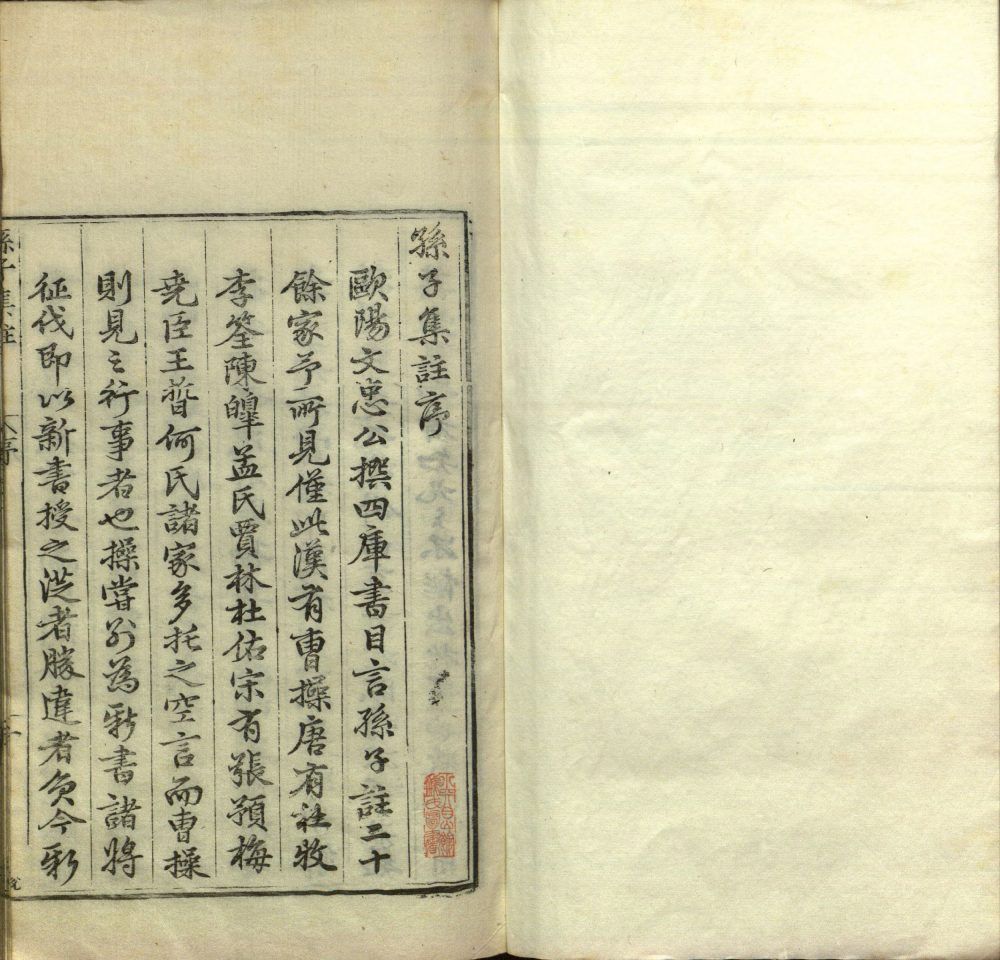谋攻第三 Attack by Stratagem

孙子曰:夫用兵之法,全国为上,破国次之;全军为上,破军次之;全旅为上,破旅次之;全卒为上,破卒次之;全伍为上,破伍次之。
Sun Tzu said: In the practical art of war, the best thing of all is to take the enemy's country whole and intact; to shatter and destroy it is not so good. So, too, it is better to recapture an army entire than to destroy it, to capture a regiment, a detachment or a company entire than to destroy them.
是故百战百胜,非善之善也;不战而屈人之兵,善之善者也。
Hence to fight and conquer in all your battles is not supreme excellence; supreme excellence consists in breaking the enemy's resistance without fighting.
故上兵伐谋,其次伐交,其次伐兵,其下攻城。
Thus the highest form of generalship is to balk the enemy's plans; the next best is to prevent the junction of the enemy's forces; the next in order is to attack the enemy's army in the field; and the worst policy of all is to besiege walled cities.
攻城之法,为不得已。修橹轒辒,具器械,三月而后成;距堙,又三月而后已。
The rule is, not to besiege walled cities if it can possibly be avoided. The preparation of mantlets, movable shelters, and various implements of war, will take up three whole months; and the piling up of mounds over against the walls will take three months more.
将不胜其忿而蚁附之,杀士卒三分之一,而城不拔者,此攻之灾也。
The general, unable to control his irritation, will launch his men to the assault like swarming ants, with the result that one-third of his men are slain, while the town still remains untaken. Such are the disastrous effects of a siege.
故善用兵者,屈人之兵而非战也,拔人之城而非攻也,毁人之国而非久也,
Therefore the skillful leader subdues the enemy's troops without any fighting; he captures their cities without laying siege to them; he overthrows their kingdom without lengthy operations in the field.
必以全争于天下,故兵不顿而利可全,此谋攻之法也。
With his forces intact he will dispute the mastery of the Empire, and thus, without losing a man, his triumph will be complete. This is the method of attacking by stratagem.
故用兵之法,十则围之,五则攻之,倍则分之,
It is the rule in war, if our forces are ten to the enemy's one, to surround him; if five to one, to attack him; if twice as numerous, to divide our army into two.
敌则能战之,少则能逃之,不若则能避之。
If equally matched, we can offer battle; if slightly inferior in numbers, we can avoid the enemy; if quite unequal in every way, we can flee from him.
故小敌之坚,大敌之擒也。
Hence, though an obstinate fight may be made by a small force, in the end it must be captured by the larger force.
夫将者,国之辅也。辅周则国必强,辅隙则国必弱。
Now the general is the bulwark of the State; if the bulwark is complete at all points; the State will be strong; if the bulwark is defective, the State will be weak.
故君之所以患于军者三:
There are three ways in which a ruler can bring misfortune upon his army:--
不知军之不可以进而谓之进,不知军之不可以退而谓之退,是谓縻军;
By commanding the army to advance or to retreat, being ignorant of the fact that it cannot obey. This is called hobbling the army.
不知三军之事而同三军之政,则军士惑矣;三军既惑且疑,则诸侯之难至矣。是谓乱军引胜。
By attempting to govern an army in the same way as he administers a kingdom, being ignorant of the conditions which obtain in an army. This causes restlessness in the soldier's minds.
By employing the officers of his army without discrimination, through ignorance of the military principle of adaptation to circumstances. This shakes the confidence of the soldiers.